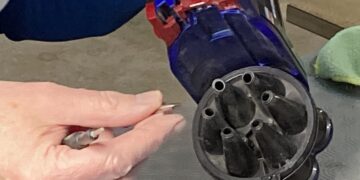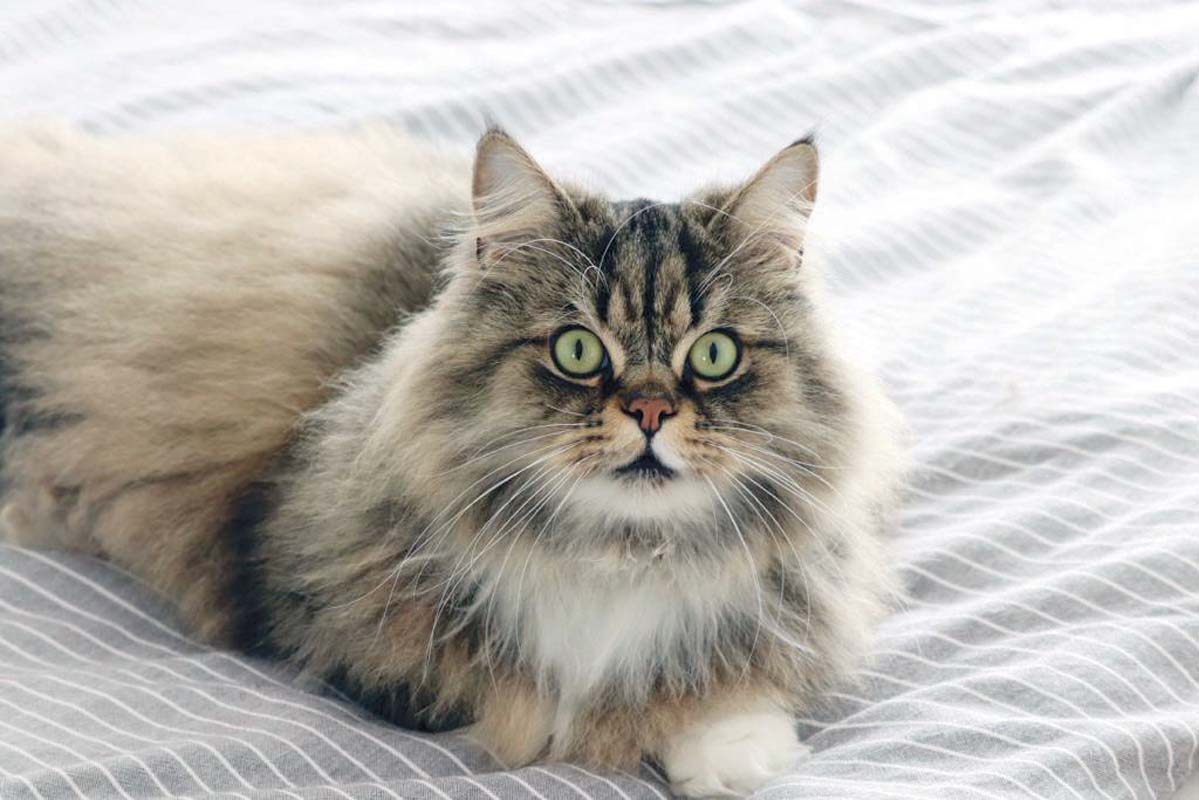Cats can be very sensitive creatures and the truth is that they are very easily stressed out by changes in their environment. Did you know that urinary issues can be one of the first signs that your cat is stressed?
Buddy, a four-year-old Norwegian Forest cat, visited us at the end of last Summer as his owners were very worried about him. Buddy was back from his annual summer holiday to the cattery, when his owners noticed he was drinking more.
They assumed it was due to the very hot weather. After a week, they also noticed that there was blood in the litter tray.
Buddy’s worried owners called us and we saw him straight away. Urinary tract issues in male cats are always treated as an emergency. We found that poor Buddy had a very sore abdomen and we could see that there was blood around his penis.
There are a few different causes of Buddy’s symptoms.
These can range from a simple bacterial urinary infection, cystitis due to stress, crystals or stones of the urinary tract, trauma or sometimes sadly a tumour. Buddy really was feeling very under the weather and so we decided to keep him in at the practice to carry out further tests.
We carried out a blood test to check his kidney function and to see whether there was any evidence of more serious causes such as infection or cancer. The blood tests were all clear.
We also carried out a procedure called cystocentesis to collect a sterile urine sample.
This involves placing a needle into the urinary bladder through the abdominal wall of the patient and collecting a sample of urine.
We examined the urine under a microscope and lots red blood cells could be seen suggesting inflammation of the bladder lining. The sample was sent to the lab for culture to rule out infection.
Our working diagnosis was Feline Idiopathic Cystitis (FIC), which is cystitis where no underlying cause can be found, however can be due to stress.
Signs for FIC may include difficulty urinating, urinating more frequently in abnormal places outside the litter tray and overgrooming.
It can be very serious in male cats as urethral blockage can occur, which if untreated can cause inability to urinate and eventually organ failure. A male cat that is not urinating is therefore always treated as an emergency.
The prognosis for FIC is very good and there are a few ways we can treat this. In Buddy’s case, as he was still urinating and there was not a blockage, he was discharged with antinflammatory for cats to help with his pain and a pheromone spray and plug-in diffuser.
An example of such a product is Feliway. This contains a synthetic copy of the ‘feline facial pheromone’ that cats leave behind on people, furniture and other objects at home.
Facial marking is a sign they feel happy and safe in their own environment. Synthetic pheromones are used to have the same comforting, calming effect as natural pheromones and can be very successful in treating stress.
We also asked the owners to encourage water intake by feeding wet food.
The urine sample was negative for infection.
At his check-up a few days later, Buddy was already feeling a lot better.
Some cats require further investigation and we would then go on to carry out general anaesthesia, X-rays and an ultrasound. However, we decided this was not necessary.
Buddy is back to full fighting fitness and we look forward to seeing him in the next few weeks for his annual vaccination.
Please feel free to call us if you have noticed any abnormal toileting behaviour in your cats. We would be very happy to help.

Katie Love is a veterinary surgeon at St Vincents Veterinary Surgery, an independent practice offering personal care for all your pets. Katie has a keen interest in feline medicine and can be contacted at the surgery if you have any concerns about your pet’s health.













































